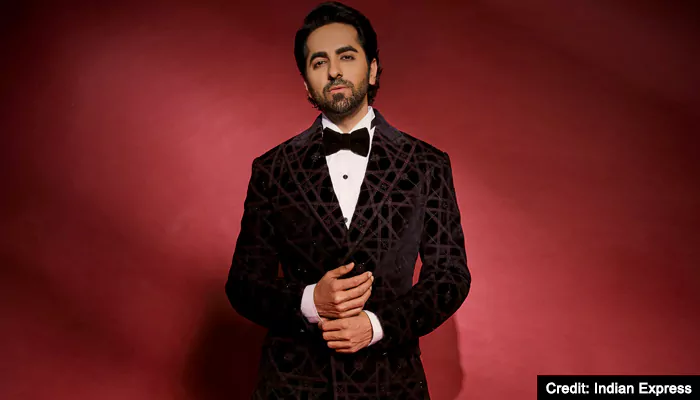At 41, the actor continues to carve out a space where mainstream meets meaningful
Imagine a bustling Bollywood stage in the early 2010s. The spotlight mainly
focused on chiselled heroes, six-pack abs shining under lights, serenading heroines in foreign settings. Into this glittering yet predictable scene stepped Ayushmann Khurrana — not with swagger, but with an unconventional story about sperm donation.
Few could have foreseen that Vicky Donor (2012) would signal not just the rise of a new star, but the birth of a different kind of Bollywood hero. Today, on his 41st birthday, Ayushmann remains a rule-breaker who thrives by forging the less trodden path.

Credit: The Hindu
The courage to be different
From the outset, Khurrana showed no interest in conforming to the typical mould of a Bollywood leading man. He selected films that were daring in subject matter and relatable in scale.
Whether portraying a man trapped in an arranged marriage with an overweight bride in Dum Laga Ke Haisha (2015) or a husband struggling with embarrassment in Shubh Mangal Saavdhan (2017), he transformed awkward, everyday challenges into compelling cinema. His choices were not mere stunts; they were statements indicating that audiences were prepared for something more courageous.

Credit: India TV News
When laughter meets social commentary
Comedy in Bollywood has often relied on exaggeration. Ayushmann, however, transformed it into a reflection of society. Films like Bareilly Ki Barfi, Badhaai Ho, and Dream Girl combined humour with issues that Indians are hesitant to discuss at the dinner table — from late pregnancies to cross-gender expression.
His performances infused empathy into satire, ensuring that audiences left the theatre entertained but also contemplative.

Credit: IMDB
The turn to intensity
Despite his comedic talent, Ayushmann’s most acclaimed moment arrived with great impact. As the blind pianist in Andhadhun (2018), he provided a masterclass in subtle ambiguity, leaving viewers uncertain whether to trust him. That same year, he portrayed the conflicted son in Badhaai Ho, illustrating a journey of vulnerability and responsibility.
Subsequently, in Article 15 (2019), he wore the uniform not as a boastful police officer but as a moral guide, reflecting on caste-based injustices. The National Award he received next only confirmed what audiences already recognised — here was an actor unafraid of exploring darkness, yet profoundly humane in his performances.

Credit: Mens XP
A voice beyond cinema
Ayushmann’s rule-breaking spirit extends beyond acting. He has captivated millions with songs like Pani Da, demonstrating that authentic artistry requires no labels.
His songwriting, theatre background, and advocacy as a UNICEF Goodwill Ambassador showcase a personality that values substance over stardom. Unlike many of his peers, he consistently presents himself as a cultural voice rather than just a box-office draw.

Credit: The Hindu
Setbacks and resurgence
Of course, not every experiment succeeded. Films like Anek, Doctor G, and An Action Hero didn't make large profits. However, Ayushmann’s resilience lies in his refusal to abandon his principles for quick gains.
His comeback with Dream Girl 2 (2023) reminded both critics and audiences that popular cinema and meaningful storytelling can indeed coexist. For him, setbacks are not failures but part of a longer, risk-filled journey.

Credit: First Post
The legacy of a modern hero
At 41, Ayushmann Khurrana exemplifies a rare combination — the reliability of a bankable star and the boldness of a social provocateur.
He keeps challenging the stereotype of the Bollywood hero: instead of pursuing larger-than-life myths, he focuses on ordinary men facing extraordinary dilemmas. That very ordinariness, conveyed with honesty and humour, is what makes him exceptional.














